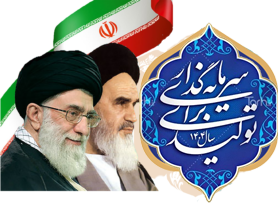The meeting of the Small Animal Health and Diseases Committee was held simultaneously in person and online at the organization's premises, with the presence of Dr. Abbas Ali Motlabi, Head of the Veterinary System Organization of the Islamic Republic of Iran, and a group of experts and activists in this field.

According to the Public Relations Department of the Iranian Veterinary System Organization, at the beginning of this meeting, Dr. Farrokh Reza Kabir, the secretary of the committee, explained the goals of this committee and said: "We have gathered here to find solutions to problems and even turn threats into opportunities. Among the issues raised is the discussion of organizing dog walking in cities, in which regard, the head of the organization was asked to draft an official letter to develop a specific framework for transporting pets in urban environments."

He also pointed out the low quality of retraining courses and added: "Unfortunately, training courses are currently not held with the desired quality and are often held without careful attention to the appointment of instructors. Our goal is to restore standards to this process and formulate training priorities in this area."
Continuing, Dr. Abbas Ali Motlabi, head of the Veterinary System Organization, emphasized the importance of the small livestock field and said: "This field is a new, special, and specialized field in the country's veterinary medicine. Although it was less addressed in the past, today, due to the changing outlook of society and the increase in keeping pets, its importance has become more important than ever."

Referring to the organization's history of actions in this area, he stated: "We have been raising the issue of pet identification for years. Now, the organization has taken a serious look at this issue and has held the first meeting with the community of activists in this area."
Dr. Motlabi continued: "In the new conditions of society, the issue of pets is an undeniable social reality. Creating forced restrictions in this area will only exacerbate the problems. We believe that the development of inner-city medical centers is of great importance, and moving clinics out of cities will cause veterinary services to go underground."

He considered the small livestock sector to be one of the greatest employment opportunities in the country's veterinary sector and said: "We consider this committee as the advisory arm of the organization, and its suggestions will be referred to upstream institutions as much as possible."
Other topics discussed at the meeting include the following:
Investigating how to build medical centers in residential areas
The need to develop regulations for pet shops and the supply of medicines and supplements
The need to establish health protocols for keeping pets
Tax follow-ups related to companion animal businesses

In conclusion, Dr. Motlabi, referring to negotiations with senior officials in the country, including the presidency and the Tax Affairs Organization, stated: "We have transferred the high costs of veterinary medical centers directly to the authorities and have called for a review of the method of calculating taxes in this sector."
In conclusion, while appreciating the presence of the committee members, he emphasized the decisive role of this group in the organization's major decision-making and said: "Providing job qualifications, continuous training, and specialized supervision of small livestock activities are on the organization's serious agenda, and we hope that with your support, effective steps will be taken to improve this field."






